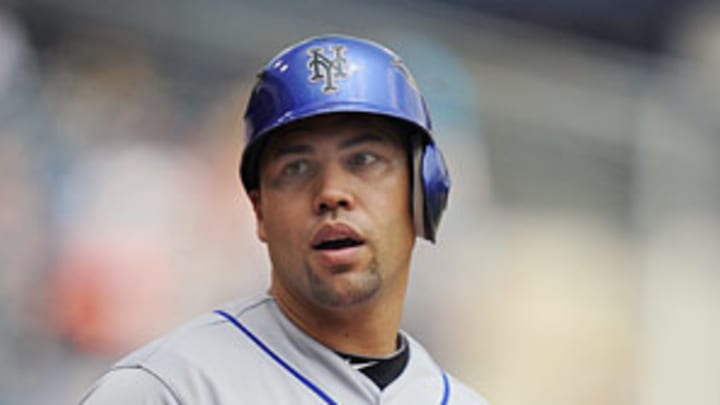Some athletes need to wake up, realize their gift -- to impact people

That's what Luis Castillo, Oliver Perez and Carlos Beltran seem to be missing here. The stardom accompanying life as a major league baseball player is as fleeting as the elastic summer days.
With all three members of the New York Mets at the absolute nadir of their career trajectories, it is, literally, only a matter of time before the million-dollar paychecks cease and the appearance requests dry up and fade away. When that happens -- when Castillo, Perez and Beltran are agent-less and begging to wave to patrons alongside Danny Gokey at the Wisconsin Vision store in Elm Grove (really, the American Idol castoff was there on June 2), they will perhaps finally realize the gift they once possessed, yet failed to take advantage of.
For the record, it's not the gift of money, or fame, or a bottomless tub of sunflower seeds, or being able to play baseball before millions of fans.
No, it's the gift of impacting people.
And it's priceless.
For some strange reason that I've never fully understood, we ordinary folk look toward the famous for inspiration. We want to touch them. To see them. To talk with them about "that game" or "that show" or "that concert." More than anything, we want them to touch us, for their fame and success to somehow provide a blinding light to guide our own lives. That's why, before every major league game, kids and adults can be found leaning over the dugouts, begging for a ballplayer's attention. That's why companies ranging from Nike to Pepsi to Go Daddy hire athletes as pitchmen.
That's why, on Tuesday, the New York Mets scheduled a team visit to the Walter Reed Army Medical Center in Washington, D.C. Are baseball players truly worthy of the adulation they receive? Not usually. But to the injured troops stationed at Walter Reed -- men and women who sacrificed so much for their country and now find themselves facing uncertain futures -- a visit from a major leaguer is a big deal.
Hence, the entire Mets roster made the trip -- David Wright and Jose Reyes, R.A. Dickey and Ike Davis, Angel Pagan and ... well, almost the entire roster. For reasons that range from insulting (Beltran said he had a meeting involving a high school he's building) to pathetic (Castillo said he gets squeamish) to pitiful(Perez said it's nobody's business), the three marquee Mets skipped out, infuriating teammates and calling into question their morality. " I have not spoken to anybody that didn't go, but I do have feelings about it," Dickey said afterward. "[Meeting the soldiers is] a big deal, and I take it very personally."
Throughout America's professional sports leagues, hundreds of athletes use their celebrity on behalf of righteousness. Whether it's Angels outfielder Torii Hunter providing college scholarships to students in California, Arkansas, Nevada and Minnesota; or Los Angeles Sparks forward Tina Thompson working with disadvantaged children; or New Orleans Saints linebacker Scott Fujita donating half of last season's $82,000 in playoff earnings to coastal restoration, there is no shortage of men and women grasping the power of their positions.
Yet when I hear about dolts like Castillo, Perez and Beltran, I am reminded how many jocks seem to lose themselves in a sea of self-importance. It's about shaking a kid's hand when he extends it (as opposed to walking away, head down). It's about saying "Thank you" when a fan shouts, "Good luck!" It's about playing hard even when the team is 17 games out, because someone out there just plunked down $40 on a ticket.
In this case, it's about remembering who's the hero, and who should be honored by the chance to recognize one.
It's about being decent.
